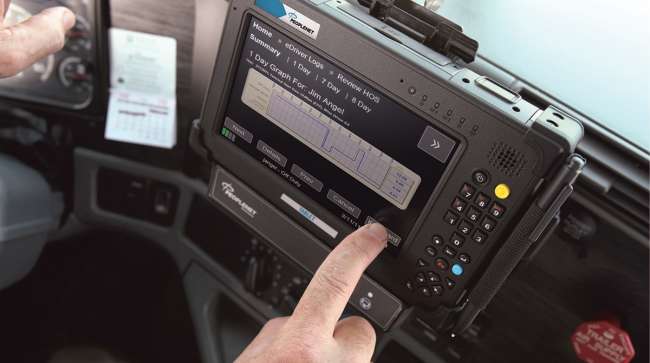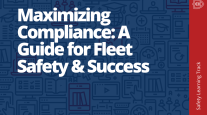Senior Reporter
OOIDA ELD Exemption Request Draws Thousands of Comments

More than 4,000 comments were filed in response to a petition that seeks a five-year exemption from the Federal Motor Carrier Safety Administration’s electronic logging device rule for small carriers, but whether any contained strong enough arguments to overturn Congress’ intent in adopting the rule is an open question.
Supporters of the proposed exemption have been met head-on by not only regulators, but also such trade groups as American Trucking Associations and the Truckload Carriers Association; a number of large, medium-sized and small motor carriers; and the federal inspectors group Commercial Vehicle Safety Alliance.
The petition, filed by the Owner-Operator Independent Drivers Association, asks federal regulators to give mostly independent operators and livestock haulers a respite from the rule that went into effect on Dec. 18.
YOUR GUIDE TO THE MANDATE: Downloadable PDF.
The rule is undergoing soft enforcement until April 1.
OOIDA said it believes that the exemption would provide time for ELD manufacturers to be fully vetted by federal regulators, allow small business carriers to determine which device best fits their operation and provide additional time for law enforcement to analyze which devices fulfill regulatory requirements. The group has gained the support of 25 members of the House of Representatives.
However, in the written comment period, which closed Feb. 1, organizations that oppose the long-term exemption continue to argue that the ELDs will reduce crashes, save lives and make it harder for truckers to cheat on their hours-of-service records. Some of them are calling the OOIDA request a Hail Mary pass that would be unfair to those carriers and drivers already complying with the mandate.
ATA said OOIDA’s request was supported only by “a series of warmed-over, ill-founded assertions that ELDs do not improve safety.”
“The issue of whether there should be an exception from electronic logging requirements for motor carriers with good safety ratings has already been considered during the rulemaking process,” ATA wrote.
“Drivers now have the tools to capture electronically their hours of service, which has put an end to the practice of falsifying log books,” the truckload carriers group wrote. “Accurately documenting hours of service is providing our industry with ample evidence to finally address such long-standing issues as detention time, truck parking and flexibility in the sleeper berth.”
The Advocates for Auto and Highway Safety said that FMCSA should “take notice that it appears that segments of the trucking industry are using the exemption process in a concerted effort to undermine the ELD final rule.”
It also said OOIDA’s exemption request does not present a “viable claim for exemption, articulate a reasoned basis for the need for an exemption, propose an alternative means of compliance other than a return to the status quo ante that existed prior to the issuance of the final rule, or that meets the threshold statutory requirements for obtaining an exemption.”
Truck drivers such as Simon Miller, of Shipshewana, Ind., who works for Low Pro Transport, dread the thought of having to install an ELD.
“ELD devices are by no means safer than paper, cost money to purchase and have a monthly fee that doesn’t go away,” Miller wrote. “Also they put us in a straightjacket and don’t give us flexibility to get the job done when we have bad weather, accidents, traffic and many other factors that happen on a daily basis that we can’t know ahead of time.”
Others filing comments argued that purchasing ELDs amounts to a financial hardship, but CVSA disputed this claim, stating that many inexpensive ELDs are available for purchase. Plus, it argued that the exemption would impose a hardship for law enforcement.
“From an enforcement standpoint, this exemption would be difficult, if not impossible, to enforce consistently,” CVSA said.





